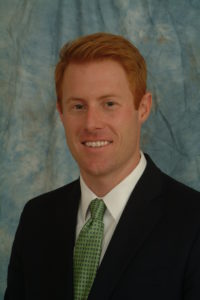Guest Columnist: John K. “Jack” Rice, Esq
John Maxwell is accredited for saying, “Change is inevitable. Growth is optional.” This oft repeated quote can be applied to many settings, including our backyards and neighborhoods. South Florida is constantly changing and composed of many municipalities growing at varying rates. Although many areas of our nation have seen decreases in growth and development during the pandemic, South Florida has seen an influx in population, largely from individuals and families relocating for quality of life (and sunshine). As these individuals and families flock to South Florida, some of their employers have followed. And with interest rates near zero, it’s not surprising that development is also on the rise. As a result, many Floridians find themselves wanting a bite at the apple, while others want to know what can be done to protect their existing real estate investments and quality of life.
quote can be applied to many settings, including our backyards and neighborhoods. South Florida is constantly changing and composed of many municipalities growing at varying rates. Although many areas of our nation have seen decreases in growth and development during the pandemic, South Florida has seen an influx in population, largely from individuals and families relocating for quality of life (and sunshine). As these individuals and families flock to South Florida, some of their employers have followed. And with interest rates near zero, it’s not surprising that development is also on the rise. As a result, many Floridians find themselves wanting a bite at the apple, while others want to know what can be done to protect their existing real estate investments and quality of life.
Fortunately, Florida’s land use and development laws allow many opportunities for individuals in both camps to participate in the real estate development process. Local Planning Agencies and Boards of Zoning Adjustment serve as release valves for developers seeking to develop structures and uses that vary from regulations and permitted uses. Land use attorneys can evaluate the likelihood of success and alternatives to relief before a project is considered by these agencies and boards. Having a land use attorney as part of a development team may not only increase the likelihood of success for an individual project, it also allows developers to prepare (and preserve) their project for opposition or should the need for an appeal or litigation arise.
Residents and landowners that are concerned about neighboring developments can also benefit from participation in the development process. Florida law affords individuals with a right to speak at most public meetings, which includes meetings of local Planning Agencies and Boards of Adjustment where projects seeking to vary from development regulations are considered. Land use attorneys ensure the interests of concerned residents and landowners are adequately considered at these meetings and may challenge decisions adverse to their client’s interests. Residents can also form neighborhood groups to represent their concerns at these meetings and increase levels of individual involvement and education. Citizens For Thoughtful Growth and 1000 Friends of Florida are examples of these groups at the local and state levels.
Floridians must play an active role in their communities’ planning process to create and preserve desirable communities that protect and promote their real estate investments. Playing an active role always involves engagement, and residents and property owners are well advised to consider engaging a land use attorney as they interact with the development process to ensure their interests are protected and promoted. Change is inevitable, but growth is optional. Increased engagement in the local development process helps ensure that growth occurs in a way that is desirable for all Floridians, newcomers and old timers alike.
Jack Rice is a seventh generation Floridian and member of the Florida Bar that practices primarily in the areas of land use and zoning, and real estate litigation. Mr. Rice also serves as a Director of the Palm Beach County Bar Association.



